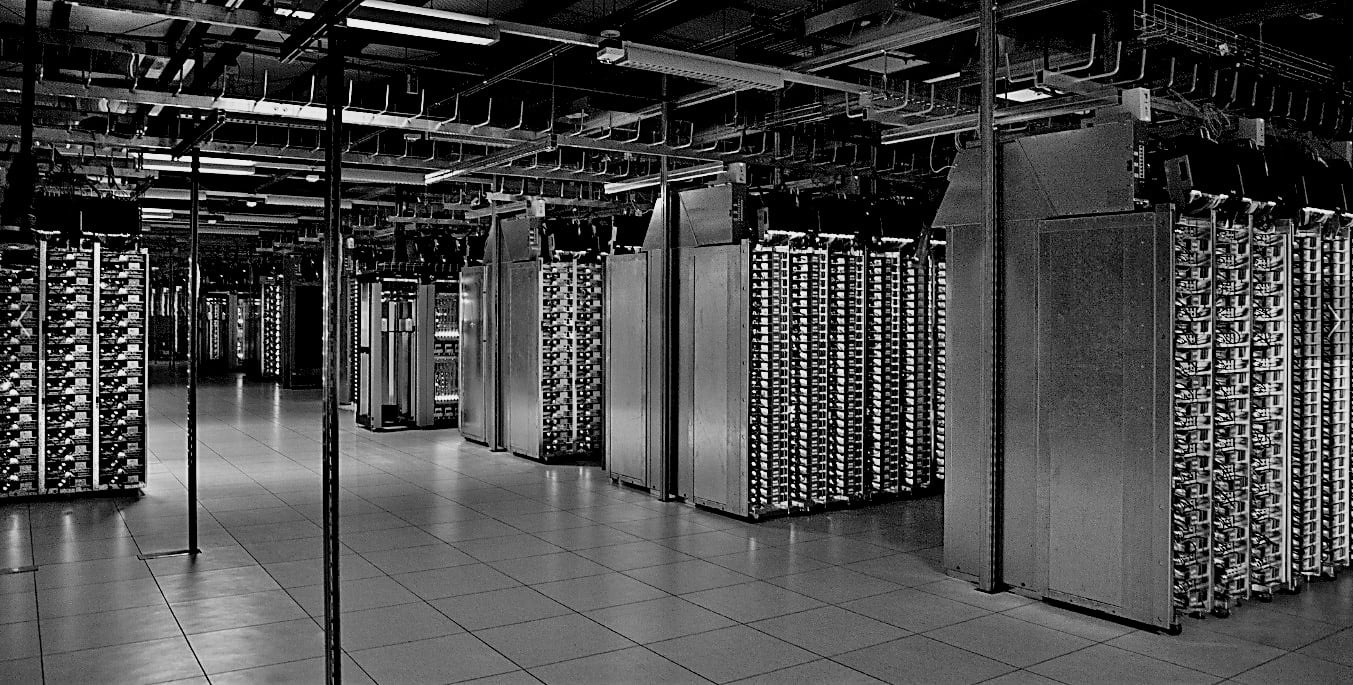It's International Datacenter Day For Those Who Colocate, Er, Celebrate

It's International Datacenter Day, when people around the world get together to share their love of faceless concrete edifices.
This 24-hour stretch is "designed to create awareness" of the bit barn industry and to "inspire the next generation of talent" - the engineers and technical staff who tend to the banks of ceaselessly humming servers within these facilities.
The modern world depends heavily on datacenters as the places where all those cat videos and holiday selfies actually get stored. They are also hosting applications that global mega corporations and public bodies depend upon for their day-to-day operations.
The downsides to this revolution? Traditional datacenters need ample amounts of electricity, water, and cooling. Cloud computing has driven facilities to expand, consuming more and more energy to sustain the multitudes of servers inside.
And with the AI craze ushered in a couple of years ago, datacenter infrastructure suddenly became a lot more energy-intensive as the hyperscale cloud providers in particular packed their halls with high-spec servers crammed with power-guzzling GPUs needed for developing and training models. Spotting an opportunity, investors piled into the industry, waving wads of cash for new, even larger bit barns to be built.
All of this is starting to place a strain on the electricity grid in some regions, which have been unprepared for the rapid increase in demand.
How about the impact of AI datacenters on the environment? The greenhouse gas (GHG) emissions generated by all these bit barns may be much higher than the big tech firms are admitting. Research last year from Morgan Stanley forecast that global emissions between now and the end of the decade will be three times greater than if generative AI had not been developed.
However, to the rescue with some timely paid-for research comes Telehouse, a colocation provider which suggests that in Britain at least, public opinion is firmly behind the government's push to scale up datacenter construction and accelerate AI development.
Lucikly, the commissioned survey of more than 2,000 individuals found that 73 percent of Brits view datacenters as crucial to driving innovation – aligning perfectly with the UK government's policy and Telehouse's own business. Fancy that.
- Schneider Electric pumps $700M into US ops as AI datacenter demand surges
- Alibaba exec warns of overheating AI infrastructure market
- Cerebras to light up datacenters in North America and France packed with AI accelerators
- UK prepared to throw planning rules out the window for massive datacenters
As public awareness of bit barns grows, so does the need for clearer understanding, Telehouse says. A quarter of respondents are unsure how they operate, and half want to see more education on the technology required in schools and universities.
We wonder if that education extends to informing people of the government's plans to set up "AI Growth Zones" with streamlined planning processes to speed the building of more facilities, which means any local objections to a massive datacenter campus suddenly springing up in your area can be neatly swept aside.
The investment being made into bit barns over the next decade will open lots of exciting career opportunities in the UK, Telehouse claims, which talks up the need to work with the education sector to include datacenter subjects in the STEM curriculum.
However, some sources dispute that bit barns are actually much benefit for the communities where they are located. Once operational, sites may create just 30 to 50 permanent positions, while larger facilities may employ up to about 200 people.
The IT jobs market shrank for a second year in a row in 2024, according to tech consultancy Janco Associates, noting cheerily: "AI automation has eliminated lots of rank-and-file IT jobs, and they probably aren't coming back."
Lest we end on a gloomy note, let us celebrate those featureless facilities wherever they are, perhaps popping up in a field near you sometime soon, as they whir away collecting all your data to make somebody, somewhere very rich.
Note: We hesitate to mention this amid all the excitement, but it is World Backup Day on March 31. Let's hope it doesn't follow International Data Loss day. ®
From Chip War To Cloud War: The Next Frontier In Global Tech Competition
The global chip war, characterized by intense competition among nations and corporations for supremacy in semiconductor ... Read more
The High Stakes Of Tech Regulation: Security Risks And Market Dynamics
The influence of tech giants in the global economy continues to grow, raising crucial questions about how to balance sec... Read more
The Tyranny Of Instagram Interiors: Why It's Time To Break Free From Algorithm-Driven Aesthetics
Instagram has become a dominant force in shaping interior design trends, offering a seemingly endless stream of inspirat... Read more
The Data Crunch In AI: Strategies For Sustainability
Exploring solutions to the imminent exhaustion of internet data for AI training.As the artificial intelligence (AI) indu... Read more
Google Abandons Four-Year Effort To Remove Cookies From Chrome Browser
After four years of dedicated effort, Google has decided to abandon its plan to remove third-party cookies from its Chro... Read more
LinkedIn Embraces AI And Gamification To Drive User Engagement And Revenue
In an effort to tackle slowing revenue growth and enhance user engagement, LinkedIn is turning to artificial intelligenc... Read more

